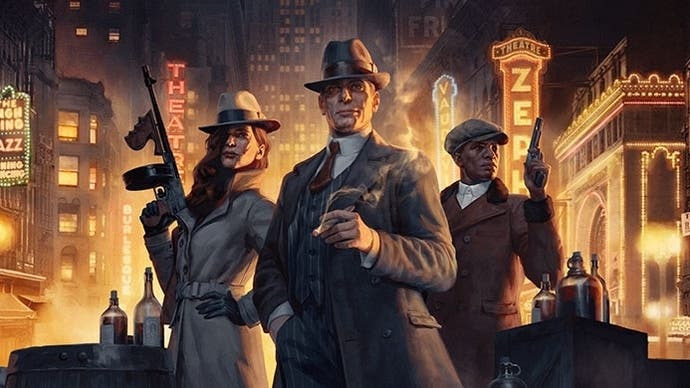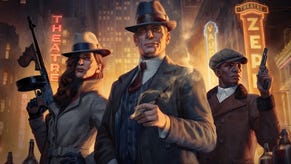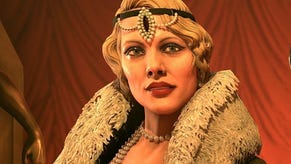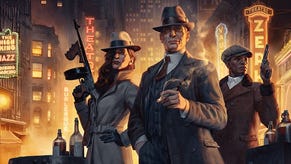Forget XCOM, Empire of Sin is like gangster Total War
Public Enemy Unknown.
Empire of Sin is rightfully getting some buzz. You've probably already heard this is the game Brenda Romero "always wanted to make", who's said she's been biding her time on the idea "for 20 years". The result of Brenda's long-standing love of mobster games, XCOM, and Civilization, Empire of Sin's drawn comparisons with some of publisher Paradox Interactive's biggest names, as well as those big hitters of the entire genre, too.
On the surface, that's exactly what it looks like: Civ on top, as you manage resources and tiles, and XCOM when you get up close. But the sense I got from seeing it in action - hands off, mind - was that if we're going to be name-dropping any other big, strategic PC franchise, it should really be Total War.
You'll start out having to choose a faction, with a certain character as the faction leader, as well as the actual scale of mob feud you're after. This means choosing how many neighborhoods and rival bosses you want to face off against. My demo actually had a great, seemingly organic "woah" moment where we zoomed out from street view to an overview of the entire district, which I thought was the whole game, until we zoomed out to another level of abstraction to view the whole city, with multiple, detached districts of 1920s Chicago in sight (three playable in my case, but with more possible).
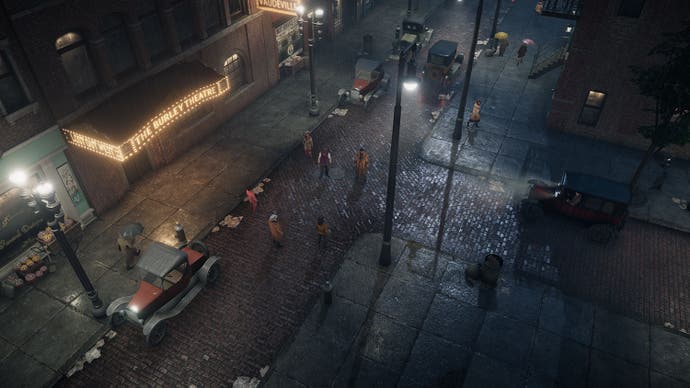
There's a decent scale to Empire of Sin then, but what struck me was a seemingly vast depth. Take the characters themselves, for instance. Your task in the game is to gain control of the city with your faction, starting small and new to the town, and growing into an empire of you-know-what, and so at first you'll have just a couple of characters in your gang. You'll meet more along the way, each one with a specific set of traits, as well as some history with other characters. As they progress through the game those relationships will evolve, according to what you have them do: have one character perform certain bloody tasks and they'll get a thirst (and aptitude) for it. Keep doing that and they'll eventually pick up the "serial killer" trait, though, and they'll get a little unpredictable. Send them somewhere with another of your faction members and, if they get into an argument, that other characters will probably wind up dead. Overlook another character for a promotion within your gang and they might get antsy. Send a goon to kill a lover of theirs in another gang and they might refuse to do it - or if their lover's killed by someone else, they might go wild. In other words, these characters provide the human element that should keep games surprising.
A lot's been made of the extremely XCOM-like combat - and it is extremely XCOM-like, from its grid- and turn-based systems right down to abilities certain characters will have, such as Overwatch, where they can cover an area and attack any enemies that run through it.
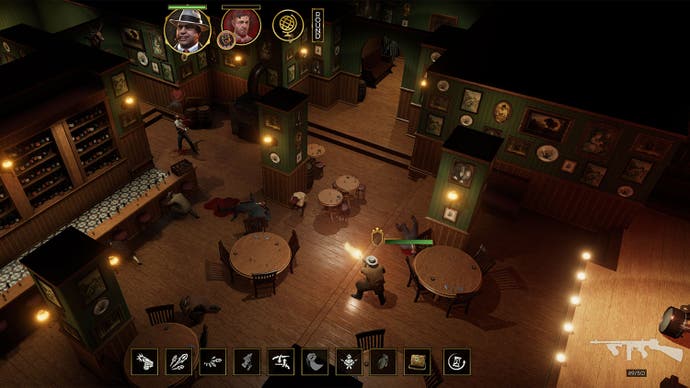
But there's more to it. Because gangsters like to shoot it out in the streets in old movies, there's an urban dynamism to proceedings. Passing cars become cover, trucks and buses can change the lay of the land. (There's also something wonderfully gangstery about all this traffic crunching to a halt because you've decided to take down Tommy Tight-Lips outside a five-and-dime.)
On top of this street-level stuff is the big "system soup", as the developers in the room put it, that forms across the layer of management. As well as juggling people and preferences, you're also managing a criminal organisation, which means keeping a steady flow of cash coming in, wrestling for control of buildings and districts and playing politics with your rivals. In our demo, for instance, the first thing we did was take over a speakeasy, bursting in and gunning down the handful of guards posted there and proceeding to get tinkering behind the scenes. On a micro level that meant upgrading the decor in our new haunt to draw in a higher class of clientele (think bottle-green paintwork updated to a classy mahogany panelling), or getting production going on a certain quality of liquor (you can make everything from top-shelf money-spinners to a poisoned batch to sell to your rivals).
Flipping that place had consequences - play for a while and you clearly even end up sounding like Bogart. Anyway, it meant that we wound up another mob boss from an already-established gang, who called us into a "sit down". We made our way there - even how you do so, from paid driver to on foot, has consequences in terms of your risk of being ambushed - and a few fairly simple dialogue-choices later we're launched into another gunfight out back, with more consequences along the way: if we'd weaseled our way out of conflict through giving into his demands, for instance that might have saved us some risk but cost us some standing with other factions. Likewise if we take him out in the fight (which we did) it's a massive win for our faction - but lose your own faction leader at any point and that's your game over.
As I mentioned then, there's an awful lot of depth, and even if a quick hands-off look wasn't really enough to get a grip on how it all tied up (honestly, I'd have loved to have seen a bit more of that sort of static-versus-dynamic, systems-playing-off-each-other thing with the environments, traits and relationships all synching up in practise), the potential is still vast, and incredibly impressive. As Brenda Romero's put it herself, games can absolutely sing when the mechanic is the message, and beyond the gorgeous, noiry, rain-slicked rendering of prohibition-era Chicago on the surface, it feels like Empire of Sin could pull together an incredible sense of place with just the systems themselves. One to watch.
